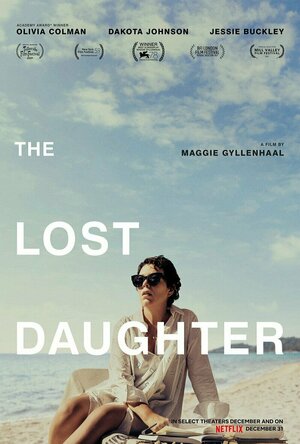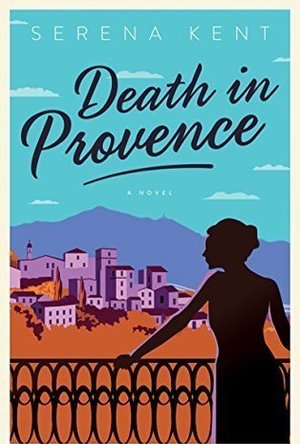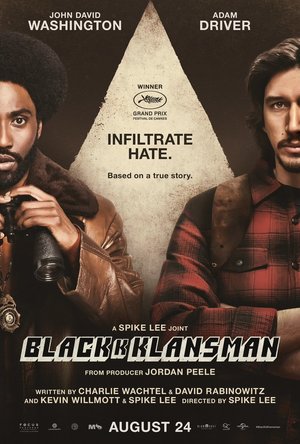
Paris By Metro – Easy subway, Train & Tram Maps
Travel and Navigation
App
VISITING PARIS? Let Paris By Metro help you see more of the city and suburbs without getting lost -...

Kitchen Angel - Recipe Organiser & Premium Cookbook
Food & Drink and Book
App
A premium recipe organizer & cookbook with 60 recipes 1. Record, collect, and share your favorite...

Black Friday 2017 Ads, Deals
Catalogs and Lifestyle
App
Black Friday 2017 (November 24, 2017) helps you find the Best online and local Black Friday deals....

Food Monster - 5000+ Vegan Recipes!
Food & Drink and Lifestyle
App
One Green Planet's Food Monster app gives you instant access to 500 FREE vegan, meatless and...

Paint Sparkles Draw
Education and Games
App
~~~ Top selling education app! Over 11,000,000 downloads around the world! ~~~ ~~~ No.1 Kids...
BankofMarquis (1832 KP) rated The Lost Daughter (2021) in Movies
Feb 17, 2022
Such is the case with THE LOST DAUGHTER, Maggie Gyllenhaal’s film Directing debut (she is also Oscar nominated for Adapted Screenplay) that follows the emotional journey of a College Professor (the great Olivia Colman) on Holiday in Greece who is forced to confront her past decisions amidst the emotional toil that these decisions have created.
Normally, these introspective, “Art House” films are not my cup of tea and during the first half of this film, I did find myself wandering a bit. This is because Colman’s character of Leda arrives on-screen at the onset of this film heavy with emotional (almost crippling so) baggage and it is almost too much to bear…which is the point. The movie, then, peels the layers back slowly to reveal why.
It is, yet again, a tour-de-force performance by Colman - who just might win ANOTHER Oscar for this work - it is that strong without being show-offey (if that is a word). Colman becomes Leda and delves strongly into the introspection, guilt, hurt and confusion that this character has. She allows the character to breathe (sometimes in gulps of crying). It is the type of character (and performance) that film today rarely allows time for on screen.
Credit for this has to go to Directer/ScreenWriter Maggie Gyllenhaal who adapted Elana Ferrante’s novel into a quiet, retrospective film. The adaptation works well for someone who has no prior knowledge of the novel and the direction and camerawork of this film is unwavering in it’s look into a character that is flawed and at times unlikeable. It is a strong Directorial and Screenwriting debut for Gyllenhaal.
Jessie Buckley is also Oscar nominated (for Best Supporting Actress) for her role as the younger Leda - a character who’s actions strongly affect the older Leda. While this character is not as nuanced as Colman’s version of Leda, she still is strong and Buckley’s performance is just as confident, self-centered, and fierce showing the roots of the person that would become Colman’s character. This is only the 3rd time in Oscars history that 2 actresses have been nominated for Academy Awards for playing younger and older versions of the same person (Kate Winslet/Gloria Stewart playing Rose in TITANIC and Kate Winslet/Judi Dench playing Iris in IRIS).
Ed Harris shows up as the proprietor of the space that Leda is renting in Greece and is a welcome presence (as always). The surprises to me in this film were the performances of Dakota Johnson and Jack Farthing. Johnson is proving that she is more than just the “50 SHADES” girl and spars with Colman quite well, more than holding her own. Farthing, who played the cold and distant Prince Charles in SPENCER is the husband of the younger Leda and he is the polar opposite of Prince Charles - open, loving and emotional. It is fun to see 2 clearly differing performances by the same actor. Farthing is someone to keep an eye on.
As is Gyllenhaal, Colman and THE LOST DAUGHTER. It is a strong piece of film-making and not an easy watch. But, if you can click into the emotion of this flawed character - and stick with this film through the ugliness and mistakes that Leda selfishly makes, you will be rewarded with a character study, the likes of which is rare in film today.
Letter Grade: A-
8 stars (out of 10) and you can take that to the Bank(ofMarquis)
Chris Hooker (419 KP) rated No Way Home (A Science Fiction Anthology) in Books
Jan 12, 2018
[To Sing of Chaos and Eternal Night] by [Lucas Bale] took me a few days to get past the beginning. The concept of a soldier who has lost all being and is just thought sent to robotic bodies and told to fight the enemy was interesting. As I stated, unfortunately, it was a slow start but the ending was worth the read.
[XE, or People Are Strange] by [S. Elliot Brandis]gave a new meaning to getting away from it all. The main character, Bradley, volunteers to be put in a shuttle to find a new habitable plant. His mission is one way and he is to send a signal back to Earth if it is a safe place. Apparently, though, he is not the first, or only, person on the new planet. I really liked the twist in this story.
[Grist] by [J.S. Collyer] is a futuristic view where one entity has taken control and all others are forced to work for them, often underground. Wyatt was not born into this so he remembers fresh air and sun. He wants to escape and be free again. Just daring to think this way can be deadly and he must know who to trust. The question this story had me asking was what is life worth?
[Merely A Madness] by [S.W. Fairbrother] was one I was really excited to see in this collection because I had read [The Secret Dead] and loved it. [Merely A Madness] did not disappoint in anyway. Earth has become a hostile place but most people have escaped off planet. Hannah loves old earth and Mullen sets up a holiday because he aims to please. This would be like current day people going to a wild west ranch, real but not too real. Things go horribly wrong and Mullen must make a hard choice. This story was one of my favorites by far.
[Revolver] by [Michael Patrick Hicks] was the most overtly political and also one of the most enjoyable. The concept of reality TV and politics preying on the unfortunates is so scary because it is not far from our current reality. I really loved the statement made in this one.
[The Happy Place] by [Harry Manners] was a story of a dream gone horribly wrong. Michael has always dreamed of going to the stars and with his wife this dream becomes a reality as he is chosen to colonize Mars. Years later he realizes his dream may be a nightmare as he begins to lose everything he loves. The only thing that keeps him going is 'the Happy Place', a virtual reality of his memories from Earth, but keeping this secret from those he loves may cost him even more. This is the third work I have read from [Harry Manners] and I love how he handles loneliness and making hard decisions. His characters are always deeper than they first appear.
[Renata] by [Nadine Matheson] is a futuristic spy story wrapped in a mob hit with political intrigue. Yes, I enjoyed this one as well. Kaoru is an assassin who gets his assignments from his brother. His latest target is in the past. This is the assignment that may just kill him.
[Cold Witness] by [A.S. Sinclair] was a mental thriller. John Marshall is sent to check out an abandoned military complex that he is told little about. When he arrives there he hears rumors of strange things involving the final project at the base. Upon arrival he begins hallucinating and his memories begin to meld with others. The question of what is reality is constant throughout.
All the stories were well written and enjoyable. I also liked how each author wrote an "Afterword" that explained a little of how they came up with the concept they did. I recommend this to any fan of futuristic and science fiction.
Midge (525 KP) rated Death In Provence in Books
Feb 2, 2019
It is a refreshing, mystery fiction novel set in wonderfully scenic St Merlot, a sleepy, quiet village that has infrequent visitors at the unfashionable end of the Luberon Valley, France. St Merlot is unspoilt, with dry stone walls and wildflowers.
What’s really likeable about it straight-away are the opening chapters that draw you into the main character, Penelope Kite. Recently retired and divorced, she is an optimistic, happy, fifty-year-old with plenty of joie-de-vivre. Penelope, or Penny to her friends, has put her unfaithful ex-husband and her ungrateful stepchildren first, for a long time. Since she left her job in forensics at the Home Office in England, she’s been an unpaid babysitter and chauffeur for her grandchildren. Now, she’s going to start living for herself so she buys her dream house, Le Chant d’Eau, or The Song of Water. The stone farmhouse tucked high in the hills is in need of major restoration but is complete with a garden, swimming pool, and sweeping mountain vistas.
But not long after her arrival at Le Chant d’Eau, a corpse is found floating in her swimming pool. The local detective doesn’t seem particularly interested in finding out either the truth or the murderer, but Penny knows a thing or two about murder investigations herself so she starts an investigation of her own.
Enter Clemence Valencourt, the chic but supercilious estate agent, the disdainful chief of police, Inspector Paul Gamelin brought in from the headquarters of the Police Municipale in Cavaillon to investigate. He is 40-ish, has a tanned narrow face, greying hair and a grave demeanour. He also speaks excellent English. The devilishly handsome local mayor is called in to formally identify the corpse. He is the maire de St Merlot, and is gorgeous, with floppy sun-streaked hair, a caramel tan and chiselled cheekbones He also has stunning dark blue eyes...
All this and being tempted by the delightful food and drink delicacies that Provence has to offer. Luckily her kind and high-spirited, old friend, Frankie who is conveniently fluid in French is just a flight away.
One of the highlights of the book is following the many twists and turns of the plot. I liked the fact that Penny is a smart 50-year-old woman who has lots of life experience and is trying to come to terms with ageing and that she is not quite as naive as her new neighbours in St. Merlot seem to believe. Both the plot and the character development are excellent, and the story is captivating and engaging. It held my interest from start to finish.
DEATH IN PROVENCE was an interesting novel particularly for the interplay of the different secondary characters as well as the primary ones - a reticent and monosyllabic neighbour, an eccentric but honourable gardener, a jaunty and smiling electrician, and a close-knit village community, to name but a few. Plenty of ups and downs along the way and plenty of surprises. I loved Serena Kent’s writing style which I found to be so vivid and very easy to read. The descriptions of the places, people and food were very real and it was easy to imagine that you were actually there. She has reflected the spirit of the French villagers, their individuality brilliantly.
Although I did not figure out who was behind the murders, even though all the clues were there, I had a great time guessing and I loved it! I was very satisfied with the ending. I have been inspired to read more from Serena Kent and I highly recommend this book. I suggest wholeheartedly that you add it to your reading list.
Thank you to Edelweiss and the publisher for a free ARC of this book in exchange for an honest review.
Daniel Boyd (1066 KP) rated BlacKkKlansman (2018) in Movies
Oct 1, 2018 (Updated Oct 2, 2018)
The movie worked in several different ways, it definitely worked as a comedy and had me laughing raucously at certain points and then it would drop an important and relevant point on you and suddenly things wouldn't seem so funny any more. All of a sudden, these laughably ignorant racists suddenly became a very real threat, which I don't think was an accident in paralleling how Lee feels about a good amount of modern day Americans like Donald Trump. Remember when he first announced that he was running for office and everybody, (including the current president at that time,) laughed at him? Now he is the most powerful man in the world and poses a very real threat to minorities in the US. I thought that this was a very clever, subtle way to take a shot without being too blatant.
Then there was a slightly more obvious shot at him when characters are discussing a man filled with hate potentially working his way into power and getting the majority of the American public on his side and how awful that would be. Although this particular dig is way more obvious, it still didn't bother me too much and I accepted it as a filmmaker using his platform to send a message to someone that he morally disagrees with.
The final dig was a step too far for me. During a phone conversation between David Duke and Ron Stallworth, Duke says something about getting rid of non-whites to "make America great again." It was so heavy handed that the characters onscreen might as well have turned around and winked at the camera. Please don't get me wrong, I think that Donald Trump is a scumbag and am totally fine with Lee taking a couple of shots at him, but I much preferred the more subtle undertones that he sent his way earlier in the film to this blatantly obvious, slightly cringey callout.
I did enjoy Lee's references to Blaxploitation films of the 70's and I liked the whole aesthetic that this movie had. The score was brilliant and the cast did a great job, the performance that stayed with me the most after the film, was Corey Hawkins monologue as Kwame Ture. He only appears in one scene in the film, but his speech, (in which I felt he strongly channelled Denzel,) was mesmerising and electrifying to watch.
The way that Spike Lee chose to end this movie has stirred some controversy, but I found it to be incredibly powerful and moving. It really sent home the message that this kind of intense, despicable hatred isn't just something that was around in the 70's and 80's, it is something that is still sadly prevalent and happening in today's society and we have people in power, like Trump, who is willing to defend and stand by these people and their violent, hateful behaviour. It was also a fitting tribute to Heather Heyer who was killed when a car crashed into a crowd of people who had been peacefully protesting the Unite the Right rally in Charlottesville, Virginia one-year prior to this film's release.
Overall, this is a funny, entertaining, uncomfortable and anger-inducing film and all of these emotion are equally relevant. I also feel that this movie does exactly what it intends to on a moral level, whether you agree with the ideals portrayed or not, Lee does a terrific job in turning a period piece movie into a painfully relevant message for modern audiences.




